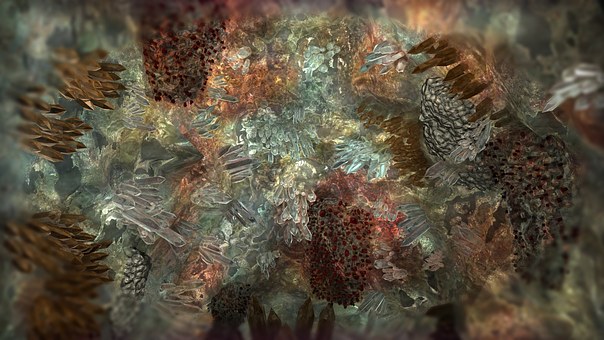Potassium: A Mineral With Many Essential Roles
© HealthyMuslim. See Terms and Conditions

Potassium, along with sodium and choloride are electrolytes. This means that they conduct electricity when dissolved in water, and these three minerals work closely togather in the body. About 95% of the potassium in the body is stored within cells, while sodium and chloride are predominantly located outside the cell.
Potassium is especially important in regulating the activity of muscles and nerves. The frequency and degree to which our muscles contract, and nerves are transmitted, both depend heavily on the presence of potassium in the right amount.
Potassium occurs naturally in a wide variety of foods. As a result, dietary deficiency of potassium is uncommon. However, a deficiency can occur if you experience excessive fluid loss, through vomiting, diarrhea, sweating, or blood loss. Lack of potassium can cause muscle weakness, cramp, mental confusion or depression. Excessive consumption of sodium in any form can also reduce potassium levels.
Food Sources
All fruits and vegetables contain potassium. Excellent sources of potassium include chard, spinach and bananas. Other good sources are fennel, kale, mustard greens, brussel sprouts, broccoli, squash, apricots, prunes, almonds and tomatoes.
However, potassium is lost from foods through cooking, for example boiling your vegetables halves their potassium content, as the mineral ends up in the cooking water. In the case of spinach, potassium levels have been shown to drop by about 56% after blanching for several minutes. Therefore try to minimize cooking time of vegetables, or eat them raw.
Link to this article: Show: HTML Link • Full Link • Short Link
Share or Bookmark this page: You will need to have an account with the selected service in order to post links or bookmark this page.





|
Related Articles:
- Potassium: A Mineral With Many Essential Roles
- Fascinating Facts about Bananas
- Nutrition Basics: Know Your Minerals: Iron
- Nutrition Basics: Know Your Minerals: Phosphorus
- Nutrition Basics: Know Your Minerals: Zinc
- Nutrition Basics: Know Your Minerals: Potassium
- Nutrition Basics: Know Your Minerals: Calcium
- Nutrition Basics: What Are Minerals?
You must be registered and logged in to comment.
Most Popular
Latest Articles
Popular Subjects
Health, fitness and longevity
Based upon the principles of health
in the Qur'an and Prophetic Traditions.
HealthyMuslim.Com
There are two bounties in which
most people lose out: good health
and free time. Al-Bukhari.























